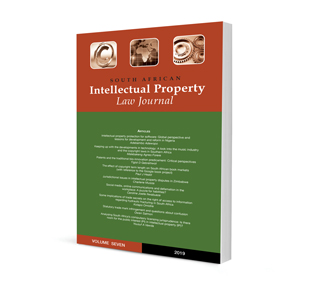The quest to use CRISPR technology in tackling the South African tuberculosis epidemic: Examining how the crispr patent and licensing regime may impact access to CRISPR-related tuberculosis therapies

The quest to use CRISPR technology in tackling the South African tuberculosis epidemic: Examining how the crispr patent and licensing regime may impact access to CRISPR-related tuberculosis therapies
Author Tamanda Kamwendo
ISSN: 2521-2591
Affiliations: Lecturer, Private Law Department, University of the Free State
Source: South African Intellectual Property Law Journal, 2022, p. 14 – 37
https://doi.org/10.47348/SAIPL/v10/a2
Abstract
Tuberculosis (TB) continues to be the top killer disease in South Africa; there is little hope of a very efficient treatment in the near future. It is therefore becoming increasingly clear that the long-term solution to TB requires more than simply adding to the current arsenal of TB drugs. A treatment that provides quicker and long-lasting results is needed. Public health innovations such as genome editing present a promising therapeutic paradigm shift in terms of TB immunisation or treatment. The diversity of the Clustered Regularly Interspaced Short Palindromic Repeats (CRISPR)-Cas9 genome-editing technology holds promise in its ability to alter the genome and to control gene expression. While the promotion of CRISPR research is a crucial public health intervention, the realm of patent laws clashes with promoting public health needs, which may delay the speedy use of this technology for disease treatment. For that reason, in this article, I discuss the South African CRISPR patent landscape and its impact on the proposed applications of genome editing technology in public health. I explore the complexities raised by the CRISPR patent landscape and how that may lead to high prices for these CRISPR therapies – thereby limiting patients’ access. I conclude by proposing recommendations on how we can efficiently bridge the disconnect between the existing CRISPR patents and access to CRISPR therapeutics as a public health benefit.